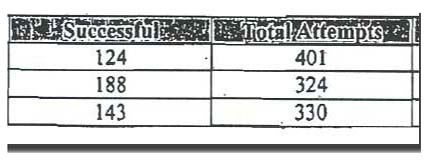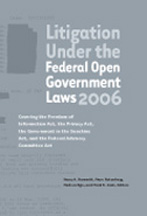
|
EPIC FOIA Notes #14 E-Passports Less Reliable Than Traditional PassportsSNAPSHOT [click for full document] THE DISCLOSURE THE ISSUE THE BACKGROUND THE SIGNIFICANCE
|
EPIC FOIA NotesSubscribe / Unsubscribe FOIA LinksEPIC Open Government FOIA PublicationsLitigation Under the Federal Open Government Laws 2006 FOIA Documents |
About
the Freedom of Information Act
The Freedom of Information Act establishes a legal right for individuals to
obtain records in the possession of government agencies. The FOIA is critical
for the functioning of democratic government because it helps ensure that the
public is fully informed about matters of public concern. The FOIA has helped
uncover fraud, waste, and abuse in the federal government. It has become particularly
important in the last few years as the government has tried to keep more of
its activities secret.



